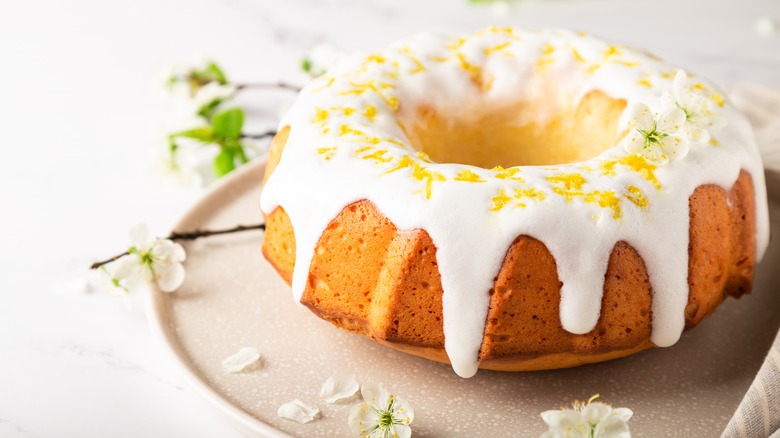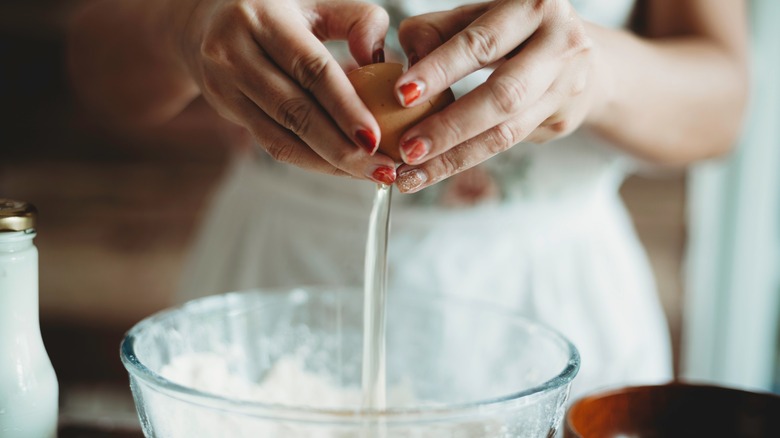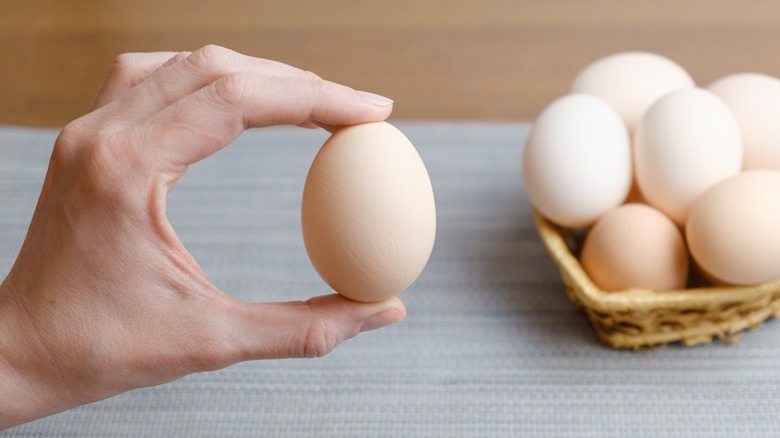The Simple Egg Tip That Will Give You Fluffier Baked Goods
There's nothing better than a baked good turning out just the way you'd hoped it would: fluffy, comforting, and delicious. You get to reap the rewards of your hard work, sharing your homemade treat with others and watching their faces light up when they take a big bite of whatever sugary, buttery goodness you've whipped up.
But as enjoyable and rewarding as baking can be, it can be equally frustrating and hard to master. Whether you're baking cakes, cookies, or soufflés, there's such a science to the whole process — you have to get everything just right for things to turn out the way they should.
So when it comes to baking, most of us will take all the tips we can get. Anything that will help us level up our game and ensure success while we mix, knead, and measure. It's time for that next tip. And if it's fluff you're looking for, you're going to want to take this one seriously.
No egg white left behind
This tip for fluffier baked goods is so simple it almost seems silly, but it makes a huge difference. According to professional pastry chef Ivy Manning, who shares her "holy grail of baking secrets", there's an extra step you can take with your eggs that will add up to optimal fluffiness, making your baked goods taste even better.
Most baking recipes will call for large eggs, and there's a reason for that — so Manning's tip is to stick to the required egg size and make sure you actually use the whole egg. Many of us are guilty of breaking this rule; we crack the egg, whatever falls out falls out, and we ditch the shell regardless of the remnants still stuck in there. But often, there will be a film of egg white clinging to the inside of the shell, and you don't want to leave it behind.
Manning says to take the extra step to poke out the rest of the egg whites with your finger. She's found that when you get every last bit of egg white into your recipe, it really does make a difference in terms of fluffiness. So whether the recipe requires the whole egg or just egg whites, scrape out whatever you can from the shell and use those eggs to their full potential.
Why do the size of eggs matter in baking?
Why are eggs so important in baking, and why does their size even matter? Well, like most ingredients in a baked goods recipe, if you use too much or too little, it can throw off the whole final product — especially something like eggs, which contribute to a recipe's specific liquid ratio.
According to Real Simple, if you use too much egg, the texture of your creation will be too cakey, spongey, or rubbery because it causes the batter to be overly liquid. If you don't use enough, it'll limit the amount of air that's let into the batter, and the result will often be dry, crumbly, or dense.
Of course, egg size can directly affect a recipe's color, flavor, and texture. As a result, it's important to get the size right, so that you don't mess with that liquid ratio. Baking expert Jocelyn Drexinger tells Real Simple that most recipes assume the use of large-size eggs, so if it's not specifically indicated, she recommends sticking to large eggs to be safe.


